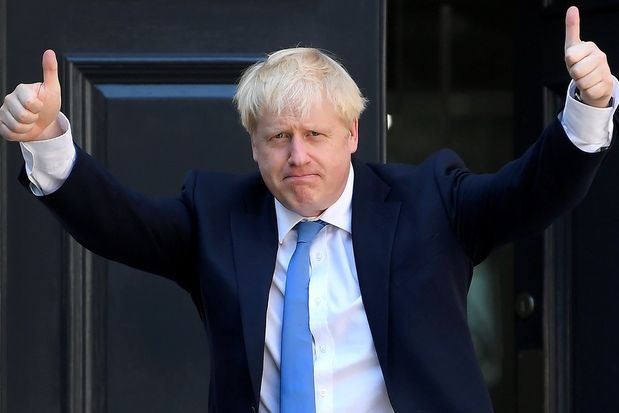
LONDON—Boris Johnson won the race to lead the ruling Conservative Party and become Britain’s next prime minister, repeating in his victory speech a pledge to pull the nation out of the European Union by Oct. 31—but the challenge he faces to meet that deadline became quickly apparent.
Several ministers—including Justice Secretary David Gauke—resigned, indicating they would oppose any effort by Mr. Johnson to leave the EU without a deal to soften the predicted economic shock.
[…] Johnson […] will run a minority government that can muster a razor-thin majority in Parliament with the help of a small Northern Irish party.
[…] His tenure will almost certainly be defined by Brexit, one of the greatest political challenges faced by any British prime minister since World War II and one that ended the careers of his two immediate predecessors.
“I know that there will be people around the place who will question the wisdom of your decision,” said Mr. Johnson to a packed auditorium of largely party members and lawmakers. “We are going to energize the country, we are going to get Brexit done on Oct. 31 and we’re going to take advantage of all the opportunities it will bring in a new spirit of can-do.”
[…] Mr. Johnson, whose decision to campaign for Brexit in the 2016 referendum helped secure victory, beat Foreign Secretary Jeremy Hunt in a vote among the party’s members for the leadership. He won by 92,153 votes to 46,656.[…]
President Trump applauded the victory. “Congratulations to Boris Johnson on becoming the new prime minister of the United Kingdom. He will be great!”
[…] Mr. Johnson’s supporters are hoping he can shift the Brexit narrative through the optimism he sought to portray in his leadership campaign and by credibly threatening the EU with the prospect that he is ready to take the U.K. out of the bloc without a deal.
[…] Mr. Johnson is expected to step up planning to ease the most serious effects of a no-deal Brexit—for example, to prevent critical imports such as medicines being held up by new border checks—in an effort to signal to the EU that he means business.
The EU has said it wouldn’t renegotiate such a fundamental element of the agreement as the Irish border proposal. It says it doesn’t want a no-deal Brexit but sees the economic and political fallout being much worse for the U.K. than the bloc.
[…] Mr. Johnson’s supporters welcomed the scale of the victory. “It is important because it gives him a mandate,” said Jacob Rees-Mogg, a euroskeptic Conservative lawmaker.
wsj.com/articles/boris-johnson-to-become-u-k-prime-minister-after-winning-party-election
